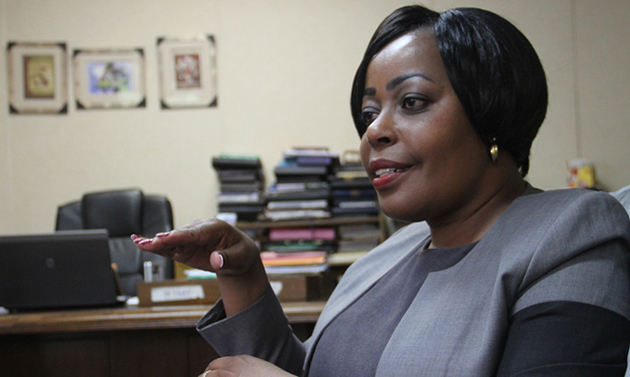EDITORIAL COMMENT: Kenya poll, a learning slate for Africa

Today, Kenya’s electoral body, the Independent Electoral and Boundaries Commission (IEBC) is expected to announce the winner of the tightly-contested August 8 presidential election. And, the world is cautiously waiting.
Although the pre and post-election violence has not reached the 2007 post-election violence levels, there is still cause for concern. The million-dollar question is: will the loser accept the outcome and allow people to move on?
We are also watching intently to see how the people of this great East African nation will resolve the issues around the contested results, for there are lessons for Zimbabwe as the 2018 elections draw closer. We also hope that any other contestations that might arise after the announcement of the results will be dealt with through legal channels as prescribed by the Kenyan law. But it is the people of Kenya that we congratulate most for turning out to vote in their numbers.
This demonstrated that the various political parties, despite their differences, had created a conducive environment that enabled the millions of voters to exercise their democratic right of choosing their future leaders.
We also commend the Kenyan government for guaranteeing adequate security to enable people to freely cast their ballots. Various observer missions in their interim reports have commended the conduct of the electoral process, which is good for Kenya.
The African Union Observer Mission led by former South African President Thabo Mbeki remarked in part that it was “very pleased to say that the elections were peaceful . . . the population went to the polling stations in large numbers.
“The people were permitted to vote in a manner which met the standards set in Kenya law, which was also consistent with the policies of the African Union. Similarly the process of counting the votes at the polling stations was done in a transparent manner . . . We can say that the processes we were able to observe, up to and including the counting of the votes at the polling stations and their transmission to the IEBC, met the standards set by Kenya and the AU for the conduct of democratic elections.”
AUOM’s sentiments were echoed by the Commonwealth observer mission led by former Ghanaian president John Mahama, who said they believed that “the election has been conducted in a transparent and credible manner.”
Former US Secretary of State John Kerry, who headed the Carter Centre Election Observer Mission also remarked: “People need to be patient and let this process work through without jumping to conclusions at this point in time. I think Kenya has an opportunity here to show Africa and the international community an election that followed the rules, and honours everybody’s vote.”
Patience is a virtue, and it is unfortunate that the reckless conduct in some quarters has resulted in fatalities and the tense situation as everyone awaits the final result to be announced.
Unfortunately, the presidential post is a straitjacket that can only be occupied by one individual at a time, a person the people would have chosen. Despite their dreams, not all eight contestants can land the coveted position of being Kenya’s next head of State and government and commander-in-chief of the armed forces.
Losing is painful, especially when one would have put in their best. However, as the world watches whether Uhuru Kenyatta clinches a second term in office and/or his rival Raila Odinga finally wins after trying so many times, the simple request we make is: would the loser concede defeat honourably? Democracy demands that!
The inverse is equally true that the winner embraces all Kenyans and put the country ahead of his personal interests. That is the mark of leadership, as enshrined in the “Harambee”, their kiSwahili motto that means, “Let us all pull together”.
More than five decades after the attainment of independence from the British, the Kenyan people and their leadership should put aside their differences and also shun the ethnic identity politics.
Kikuyu, Luhya, Luo, Kalenjin, Kamba, Kisii, and Meru are identities that have been used for too long to divide the people of Kenya, thereby creating conflicts and civil strife. This can be replicated to Zimbabwe where ethnic identities like Karanga, Zezuru, Ndebele, Tonga, Manyika, Nambya, etc. are used to create divisions among people, at the expense of progress.
So, as we wait for Kenya’s moment to define its identity as an established democracy, we should also remind one another that elections on the continent should not be used as tipping points to create chaos and mayhem.
Those who suffer most are not the political leadership, but ordinary people for, as the saying goes, when elephants fight, it is the grass that suffers.
Thus leadership in Kenya and the continent as a whole carry the burden of peace and unity, and they also have the responsibility to instil a hope and a future in the African post-colonial state, whose vulnerability can easily be manipulated.
The African Union’s Agenda 2063 aspirations cannot be achieved when we cannot follow agreed upon principles clearly laid out in our Constitutions.









Comments